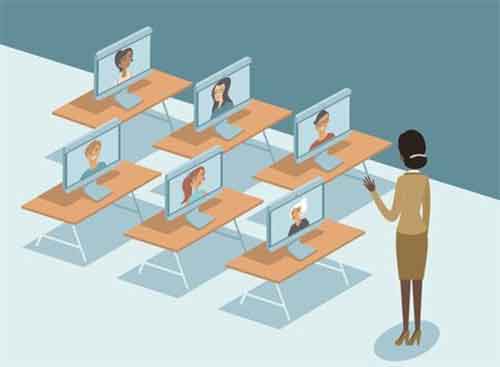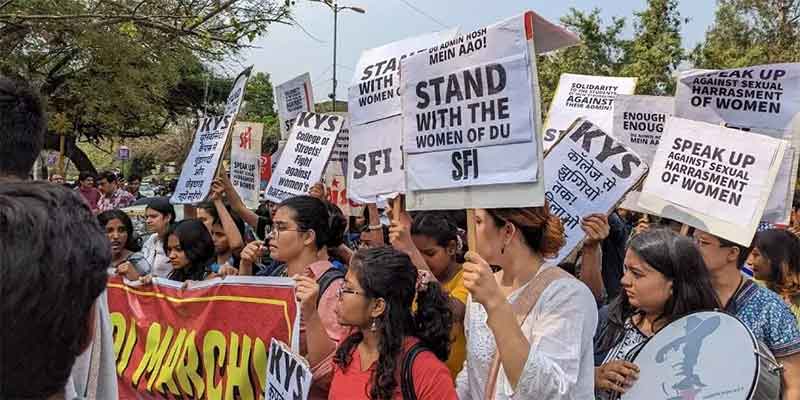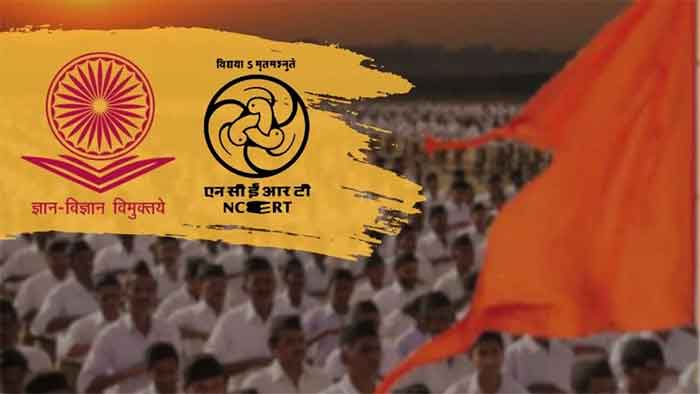
The last year has been extremely difficult for school education. On the one hand there have been very prolonged school closures due to COVID related factors and on the other hand the new situation has been used to push commercialization trends which already existed but appear to have gained more strength in these exceptional times. There is a feeling of the exceptional situation being used by vested interests to advance their own agenda and they seem to be succeeding. The ultimate harm will be that of school education and children.
Even before COVID times, of course, there were sharp inequalities in the school education system in India which were increasing further with the reduced role of government schools with their low cost education and the increasing role of private schools with high costs. Many government schools suffer from shocking lack of basic facilities and are deprived of essential resources. There are sharp inequalities even within the teaching a staff in many places. Teachers have been saddled with several types of extra work and paper work with the result that they have much less time for the actual teaching work which is supposed to be their main work and responsibility. Strong commercial interests have been emerging in the sector of school education , relating not just to expansion of chains of private schools but also of peddling of expensive educational aids which pave the way for more mechanized, more centralized and less inter-active forms of learning. When COVID related school closures were declared, attempts were made to make up for this with on-line education. But this was difficult for children from poorer, rural and more remotely located households which had less access to smart-phones and computers, internet connectivity and computer skills. Parents were forced to cut on essential expenses to buy smart phones or computers, or arrange connectivity on regular basis. If limited resources could be accessed, there was the problem of how these would be shared by the various children in a household. Generally it is the girl child who got more left out in such a situation. It is also more difficult for poorer children ( for example those living in one room slum houses ) to study from home. On-line education is also much less likely to be accommodative of the language with which most children of any region may be more familiar, or of the special needs of several children.
Hence disadvantages for poorer children, rural children and girls have gone on increasing. The longer schools remain closed, the greater the chance that such students would tend to forget what they had already learnt and it would be difficult from them to resume education without special help. In addition, of course, many of them were also deprived of facilities like nutrition programs, free uniforms and books, not to mention the joy of meeting school friends, studying and playing together on daily basis.
Now there is an increasing possibility of drop-outs increasing. Even earlier the number of children who do not go to school in many villages was often more than what was stated in official records. As I have often seen in the course of my field-work, when we make inquiries not in the main settlement and instead go to the more remotely located hamlets of dalits and other weaker sections, then here the number of children not going to school on most days is much higher. But , now due to the emerging situation, this situation is likely to deteriorate further. This is a situation which requires a big increase in school education budget, but this was denied in the recently presented Union budget.
While the problems are more severe in the case of children from poorer households, these are not confined to them. Even other children from better-off sections, in fact even the elites suffer due to some other factors such as the denial of company of school friends learning together, playing together. No matter how hard teachers work to cope with the new demands on them, on-line education can never give the same good results that direct contact of teachers with students provides. But there are pressures for more role for centralized on-line education and special packages. There are increasing pressures on school managements and teachers to be accommodative towards the commercial interests, as well as to obtain their collaboration. Teachers are under increasing pressure of fulfilling several responsibilities without having the creative satisfaction of true education.
Success in education and learning best comes from the inter-actions between curious children and creative teachers. A bottom to top approach in educational research learns from these millions of inter-actions. But the trend now is increasingly for powerful interests to use the educational establishment to impose data-gathering and top-down experiments with their own motivations in the name of improving education and providing expensive educational aids. In such conditions teachers increasingly lose their instinctive creativity and instead become implementers of data gathering and experimental exercises imposed from above where their own role is reduced to drudgery of documentation to fulfill some external imposed agenda.
Sadly this is happening in the land of such great educationists known for their originality and creativity as Tagore and Gandhi . Rather than learning from them school education appears to be going further and further away from their ideas. The crucial sense of ethics as emphasized by Gandhi in particular is increasingly ignored in favor of false values of aggressive competitiveness and narrow success in career/material terms being everything. This will not help at all to create a better world even if great success in narrow terms of examination results is achieved. What is more, there is a real danger of school education being diverted towards a narrow, sectarian, biased interpretation of history.
As smart phones and computers are placed in the hands of children , they will increasingly use it for educational as well as for other uses, including harmful and addictive uses. There are many problems linked to exposure to several aspects of life prematurely at too young an age. With all this on-line exposure, there are problems of too much strain being placed on eyes and all the other health problems that have been linked to excessive hours spent at computers and smart phones, and exposure to their connectivity providers, which in any case have been found to be much higher for children than for adults. Education like other factors becomes dependent on external forces and the possibilities of linking education closer to local surroundings and conditions decreases. The health hazards for children increase and will increase much more with the advent of 5G technology.
It is high time that eminent educationists should get together to consider all aspects of the fast changing school education situation and recommend a path ahead which is best for children, their health and education, and which provides more conducive conditions for teachers to fulfill their primary responsibility of providing good education.
Bharat Dogra is a journalist and author. His recent books include Protecting Earth for Children and Man Over Machine.
GET COUNTERCURRENTS DAILY NEWSLETTER STRAIGHT TO YOUR INBOX















































